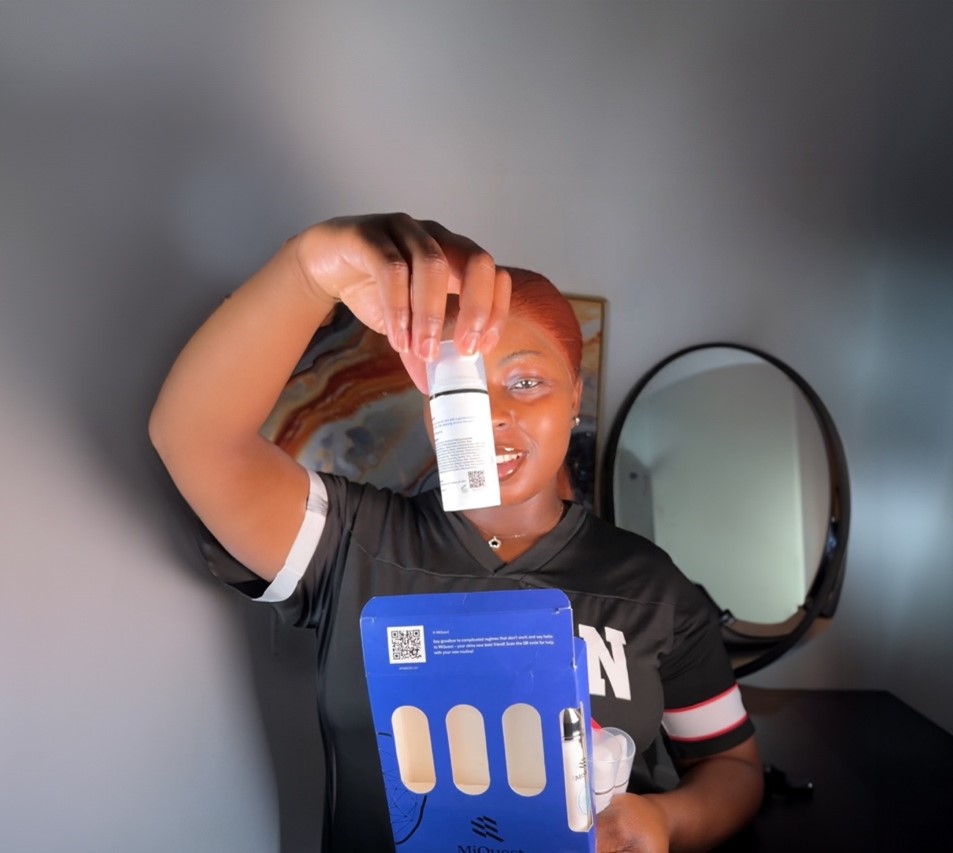
You may have come across the term ‘skin barrier’ and now find yourself wondering, what exactly is it?
In this article, we explain everything so that by the time you’ve finished reading, you’ll know all there is to know about what it is and how you can take care of it. Let’s jump straight in…
What is Skin Barrier?
Your skin barrier is your skin’s first defence against the outside world. Although it is often referred to as the skin barrier, you might also know it as the -
- Lipid barrier
- Moisture barrier
Your skin barrier is basically the protective layer of skin that helps to ensure any moisture stays in and any pollution and irritants keep out.
It is made up of skin cells and lipids, which together - when strong - form a protective barrier between you and the outside world (1).
Damaged Skin Barrier Signs
Prevention is always better than cure, but if you think your skin barrier might be damaged, these symptoms will tell you -
- Skin that’s sensitive, irritated in any way, or inflamed
- Itchy skin
- Dry skin, or skin that’s developed scaly patches
- Acne
- Fungal, viral or a bacterial skin infection
What are Lipids?
Lipids are chemical compounds and act as structural parts of the skin cell barrier - helping to keep it strong and stable. They are made up of fatty acids along with ceramides and a number of other nutrients.
When your skin cells and lipids are strong, your skin barrier is strong and therefore your skin will be too. However, if you have stressed and/or sensitive skin that might be experiencing certain conditions, it’s likely your skin barrier is compromised (2).
How to Take Care of Skin Barrier
So, now you know your skin barrier is vital to achieving optimum skin health. That means it will be -
- Protecting you from irritants such as pollution, UV rays, and bacteria
- Keeping your skin moisturised and hydrated by retaining the water it needs
- Working hard to deliver nutrients where your skin needs them
These are all key factors to a well-functioning skin barrier. But how do you go about making sure your skin barrier ticks all of these boxes? Fortunately, there is plenty you can do to keep it functioning to its best abilities.
How to strengthen skin barrier
For the most part, keeping your skin barrier at its best isn’t too tricky a process and there are plenty of little steps you can take to work towards optimum skin barrier health. Here are our top suggestions:
- Wash your skin in warm water - anything too hot or cold can stress the skin
- Keep your cleanser mild - a gentle cleanser for skin barrier won’t rob your skin barrier of moisture and nutrients
- Opt for fragrance-free products - added scents can actually make your skin more sensitive
- When it comes to exfoliation, steer clear of abrasive scrubs as they can damage your skin. Leave-on exfoliants like AHAs and BHAs are much kinder
- Don’t neglect the sunscreen - wear it everyday and opt for SPF 30 or more
- Tread carefully with active ingredients - high strength products with retinol, acne-focused ingredients and AHAs and BHAs may irritate. Your best bet is a personalised MiQuest formulation designed for your skin so you know those active ingredients are at the right levels for you
How to Repair Skin Barrier
If you think you’ve got a damaged skin barrier and it needs a little extra TLC, there are plenty of things you can do to nurse it back to good health.
But first, it might be helpful to know what can actually cause a damaged skin barrier (3). They include -
- Excess exposure to the sun
- Too much exfoliating
- The natural ageing process
- Taking certain medicines - for instance, steroids can have a negative effect on the skin barrier
- Your environment - very cold or very hot places can wreak havoc on your skin barrier
- Exposure to harsh chemicals
- High levels of pollution, irritants and allergens
- Bad sleeping habits
- Anxiety
- Using alkaline soaps or washing detergent
So how can you heal your skin barrier? You’ll be pleased to hear there are many available products to repair skin barrier, and with a little care and attention you can work to fix a suffering skin barrier in as little as a few weeks.
Though don’t expect it to be back to its optimum health levels until around six months into treatment - that’s when you’ll really notice a big improvement.
Can I Use Vitamin C on Damaged Skin Barrier?
To get your skin barrier healthy again you’ll need to flood it with nourishing ingredients.
Look out for products with ceramides, hyaluronic acid, cholesterol, and fatty acids to get your skin barrier restored.
Serums with antioxidants like vitamin C and glycolic acid are also great options as they help to protect against UV damage and environmental stressors (3).
Personalised Skincare is Best
At MiQuest, our prescribers use their clinical expertise combined with our state-of-the-art AI skin analysis to diagnose and customise a prescription that’s just for you. That means if your skin barrier is compromised, we’re the people you can trust to find the optimum active ingredients to fix that for you.
As you journey along on your pathway to better skin health we’ll be with you every step of the way making sure you’re seeing improvements, your skin is getting the ingredients it needs, and switching up your prescription if things change. We’re exactly who you need in a personalised skincare subscription service and the whole process is as easy as it gets.
Apply your personalised cleaner, moisturiser, and SPF in the morning. Apply your cleanser, moisturiser and Q-Stick packed with all your active ingredients in the evening. Skincare regimes don’t get any simpler! Try it today and see your skin transform…

References:
- Rawlings, A.V. and Harding, C.R., 2004. Moisturization and skin barrier function. Dermatologic therapy, 17, pp.43-48.
- Bouwstra, J.A. and Ponec, M., 2006. The skin barrier in healthy and diseased state. Biochimica et Biophysica Acta (BBA)-Biomembranes, 1758(12), pp.2080-2095.
- Griffiths, T.W., Watson, R.E. and Langton, A.K., 2023. Skin ageing and topical rejuvenation strategies. British Journal of Dermatology, 189(Supplement_1), pp.i17-i23






AI-Empowered Dermatology, Personalised For You.






